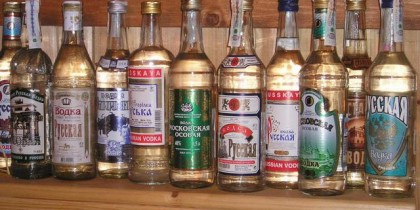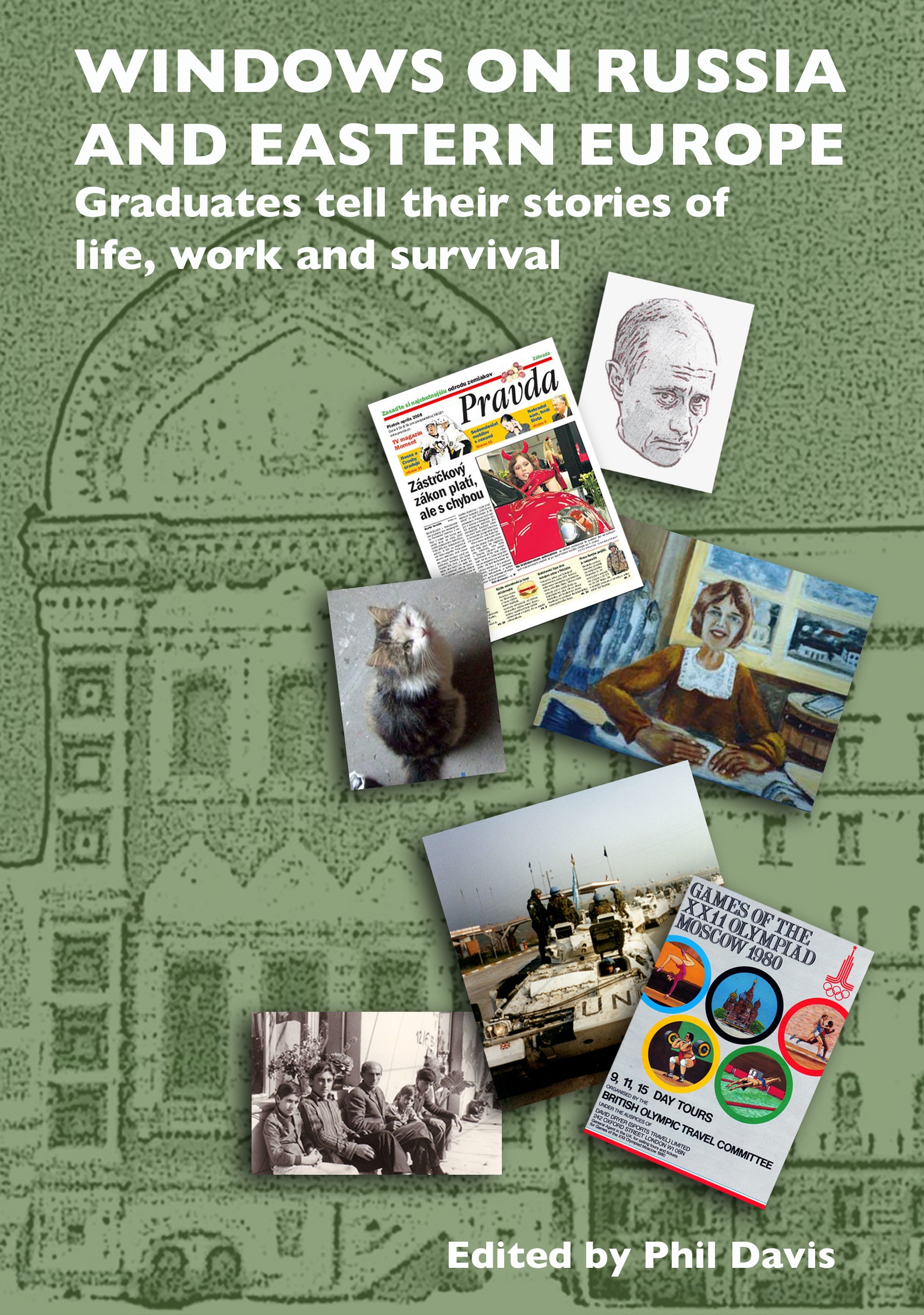
June 26, 2013, by Malvika Johal
Windows on Russia and Eastern Europe
Windows is a collection of individuals’ tales of how the Communist-controlled lands of the Soviet Union and Eastern Europe evolved from Stalinism to Gorbachev’s perestroika to the robber baron days of the 1990s and finally to today’s uneasy mix of free markets and semi-authoritarian rule. The stories are those of graduates of Slavonic studies, who chose to live and work in the former USSR and Communist Eastern Europe. Setting off on their chosen path in Slav lands, the authors were typically well-versed in terms of language and culture. But many underestimated the challenges – and dangers – they would encounter. 
Jonathan Bastable (German and Slavonic Studies 1984) describes his encounters with the KGB in the ex-USSR:
The KGB has always been seen in the West as secretive and all-knowing, but it was in fact neither. The KGB, at least the department charged with the surveillance of westerners, was (like the deluded Vitaly) almost comically ignorant of life in the countries that their targets hailed from. I was once interviewed by a KGB man at OVIR, the visa office on Kolpachny Pereulok in Moscow, where I had to go every month to request permission to stay in the country for a few weeks more. Sitting below a portrait of Felix Dzerzhinsky in his dusty kabinyet, the officer expressed astonishment that I, the son of a policeman, was allowed to leave Britain at all. “My family can’t go anywhere because of me,” he said. ‘They are all neviyezdno – uncles, in-laws, nieces, all of them’. Neviyezdno: a succinct and almost untranslatable Soviet adjective that means “forbidden for good or bad political reasons to travel beyond the borders of the USSR”: unabroadable. The same man was amazed when I told him that higher education was free in Britain (those were the days). ‘Nado zhe’, he said, over and over again. ‘Well, I never.’
As for its activities inside Soviet borders, the KGB was not so much the secret police as the blindingly obvious police. Not for nothing was (is) the Lubianka, the headquarters of the KGB, a vast and extremely prominent building in the centre of Moscow. In every Soviet city, the KGB building was as conspicuous as a lighthouse on a clifftop. The security police did not work in the shadows: they wanted you to know that they had an eye on you – on you and everyone you knew. When I was at Moscow University in 1985-7, my room was turned over several times by the
KGB. They always left a cigarette butt in the toilet as a kind of a calling card. This was standard practice. A friend who came from England to visit had his room in the Rossiia Hotel searched: he knew they’d been because they took the batteries out of his electronic chess set and kidnapped the white queen, scattering the other pieces on the floor.
For further information on “Windows” and to pre-order the book, contact publisher James Muckle at: bramcotepress@ilk81rr.orangehome.co.uk
No comments yet, fill out a comment to be the first

Leave a Reply